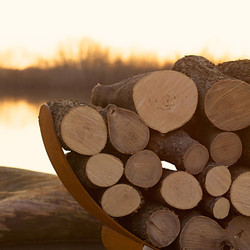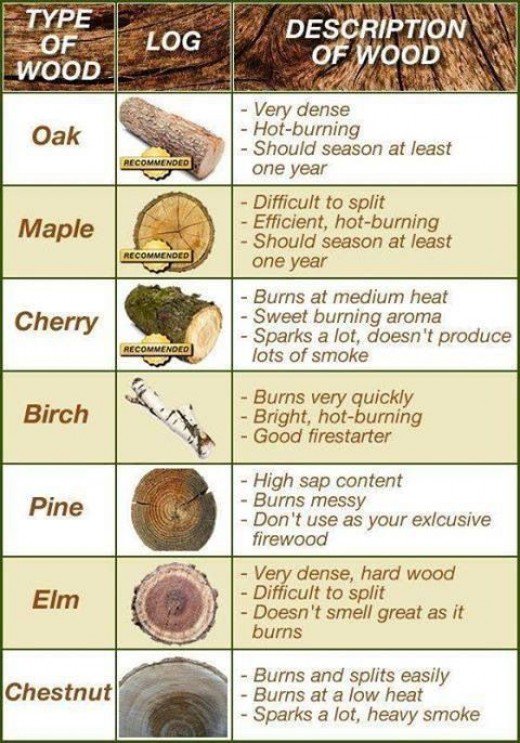The Best Wood To Burn In A Wood Burning Fire Pit - Part 1
Posted by The Fire Pit Store on 8th Oct 2016
Check Out The Coolest Fire Pits - Click Here
So are some types of firewood better than others?
AFTER READING THIS PAGE CLICK PART 2 BELOW
TO SEE A LIST OF WHICH WOOD TO AVOID.
To keep safe and enjoy your fire pit to the max, learn which wood to burn in your wood burning fire pit. Keep the sparks to a minimum...unless you want them. Learn which wood will burn the longest.
The other day a friend of mine asked me what kind of wood would be the best to burn in his new outdoor fire pit. I told him, “Any kind you want.” I wasn't being flippant. As opposed to indoor wood-burning stoves and fireplaces, this is one of the nice features of having an outdoor fire pit. No creosote or chimney fires to worry about. Fewer restrictions. More outside. And really, any type of firewood is better than no firewood at all, because then all you have is a cold fire pit how much fun is that?
Now, you do have to exercise a bit of common sense, folks. Imagine you decide it's a perfect night for an impromptu after-hours party and suddenly realize you're out of kindling only after everyone gets to your place, and you're all out there drinking cold beer and freezing in the backyard wishing for something different. That's not the time to pull down the old shed. Even out in the open air, certain things are just never a good idea to burn in a wood fire pit: telephone poles, railroad ties, pressure-treated wood, particle board, laminated, stained, or painted wood, pieces of furniture, that old couch, assorted trash. Everyone should know by now that these things are saturated with chemicals that are hazardous for you and your guests to breathe. Moreover, the combustion of certain industrial compounds contained in these chemicals can also release chemicals that are very bad for the environment. Not only does it add to the greenhouse effect, but certain toxins can accumulate in your soil and groundwater. A gift that keeps on giving. No thank you.
Of course, if you were to find yourself in an emergency when you're faced with hypothermia and certain death, use your head. I am in no way suggesting that you don't burn anything and everything you can get your hands on, including tires, to save your life. For instance, in the unlikely event the plane you're flying crashes into a mountain somewhere in the middle of nowhere and you hope to be rescued, now would be the perfect time to use some nice, stinky elm or poplar to build a fire, with a generous helping of unseasoned chestnut on top or some seat cushions. In this case, you want as much smoke as possible. What I'm trying to say is that there's a time and place for most everything, and most everything has a use, so think it through.
Having said that, I know that most of the people who are going to read this are not drunk, or lost in the woods, or drunk and lost in the woods. You're probably someone like my friend who just got a new wood burning fire pit, or you are a soon-to-be owner doing a little homework. Maybe you're new to rural living and itching to get back to basics or an urban dweller trying to get reacquainted with yourself outside the context of civilization's daily attack on your brain. Look, we all know this is a calling. There's a reason you're reading this particular article and not one on “How to Rig Your Outdoor Fire Saucer For Propane.” This is not your daddy's fire pit.
So are some types of firewood better than others?
CLICK PART 2 BELOW TO SEE A LIST OF WHICH WOOD TO AVOID.




